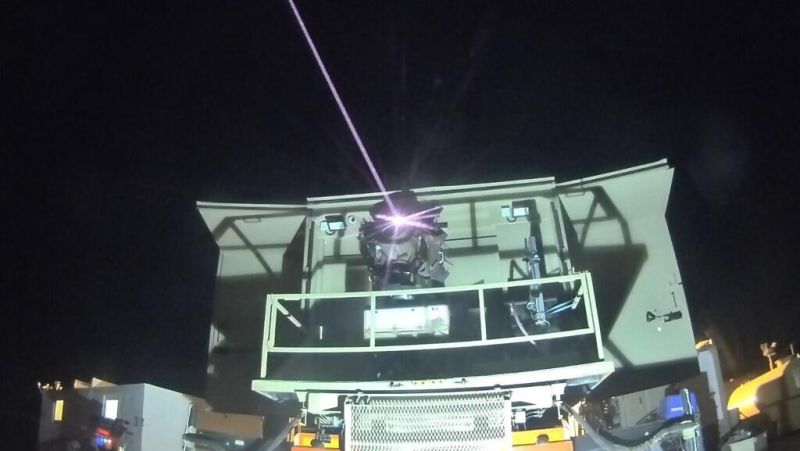In an unprecedented move in the global defense system, Israel has announced plans to deploy a laser-based defense technology capable of shooting down incoming missiles, superseding traditional kinetic systems. The new approach, utilizing a directed energy weapon system to neutralize threats, points towards a revolutionary shift in military technology and a potential game-changer in the realms of missile defense.
The Israeli Ministry of Defense has made headway in developing a high-energy laser system capable of intercepting and neutralizing projectiles mid-air. These energy weapons use the power of focused light to destroy their targets, offering a level of precision unachievable by conventional defense systems. Lasers have a nearly limitless ammunition capacity, as the ‘ammunition’ essentially comes from energy sources like a generator or battery pack, a major advantage over kinetic systems which require physical storage and transportation of ammunition.
This development is a part of Israel’s multi-layered defense strategy, intended to strengthen its ability to counter the threats posed by neighboring countries. The planned system will augment existing defense technologies like the Iron Dome, David’s Sling, and the Arrow system. Combining the strength of these established kinetic systems with the technological prowess of laser systems is anticipated to bolster Israel’s defense capabilities to unprecedented heights.
The laser-defense system would particularly show strength against a variety of threats including rockets, artillery, mortars and unmanned aerial vehicles (UAVs). Unlike traditional systems, which become less cost-effective when encountering large volleys of incoming projectiles, lasers would maintain effectiveness regardless of the volume due to their near-instantaneous response time and inexpensive operation once established.
While the technology’s potential appears promising, laser systems are not without their challenges. Weather conditions, including fog, dust or rain, could potentially interfere with laser beams, reducing their effectiveness. However, through a combination of advanced adaptive optics and unique algorithms, Israel’s Ministry of Defense believes it has overcome most of these challenges.
Another aspect of this innovation is the potential for reducing collateral damage. The precision of this laser-based system allows for greater control in target engagement, minimizing unintentional damage and the potential for civilian casualties. Additionally, unlike its kinetic counterparts, lasers produce no explosive byproducts, further reducing the risk of unintentional harm.
Israel’s investment in the novel laser technology does not mean immediate abandonment of kinetic systems. The traditional systems will remain vital in the comprehensive defender’s arsenal due to their proven effectiveness. However, their deployment in tandem with laser technology could create an integrated, advanced defense shield capable of neutralizing a wide spectrum of threats.
In conclusion, Israel’s plan to use high-energy lasers for missile defense marks a significant turning point in military technology. By combining this with their existing defense mechanisms, Israel is sending a clear message of its dedication to defending its sovereignty and the safety of its citizens. The world watches with bated breath as these daunting lasers prepare to be unleashed, promising to reshape the future of air defense.




